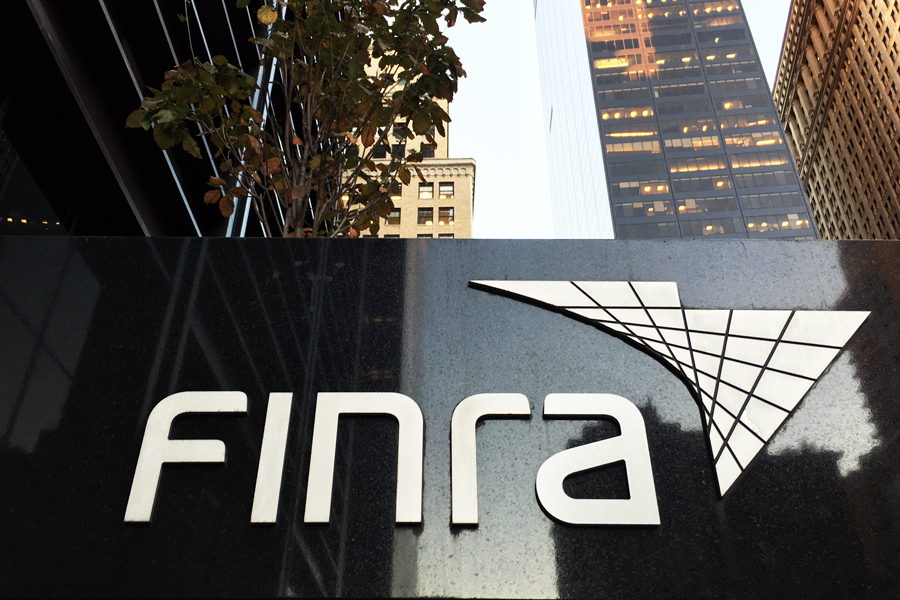The Financial Industry Regulatory Authority Inc., along with the rest of the securities industry, is staring at a fresh wave of unpaid — and embarrassing — arbitration awards.
Arb awards go unpaid when investors win lawsuits against broker-dealers that sold them unsuitable, faulty or troubled products only to see the B-Ds go belly up and run out of money before they can pay investor damages.
[Recommended video: Walt Bettinger lays out Schwab's plan with zero-commission trading]
What's causing this dire outlook? Three private placements whose value has diminished and which are
awash in a tide of legal problems — two Ponzi schemes, Woodbridge and 1 Global Capital, and the continuing problems of GPB Capital Holdings.
The canary in the coal mine is the failure and closure last month of Taylor Capital Management Inc., a small broker-dealer in Georgia. The firm
potentially faces dozens, if not hundreds of investor claims stemming from brokers' sales of 1 Global Capital investments, a $280 million loan fraud.
Unpaid arbitration awards are
an ugly stain on the securities industry, as this column noted at the start of the year.
One investor, Catherine Baker, this month won damages of $229,000 against Taylor Capital in a claim heard in Finra arbitration. Her lawyer, D. Daxton White, said Ms. Baker will likely never see the claim paid.
"Taylor Capital is apparently inundated in 1 Global cases similar to this one," Mr. White said. "The real story here is that apparently the firm had errors and omissions insurance, but its carrier declined coverage."
"We are seeing E&O carriers getting more and more aggressive in declining coverage, which forces broker-dealers to either shutter or pursue bad faith claims, which the carrier knows the firm can't really afford," Mr. White said. "Also, the renewal policies are now littered with exclusions ... making it that much more likely that carriers can avoid coverage for future claims."
That all means the customer is out of luck, even though he or she has followed industry rules that mandate that investors sue their investment adviser rep or broker-dealer in an arbitration process under the aegis of Finra, the brokerage industry's main regulator.
It's a serious problem that will likely grow in the near future. From 2013 to 2017, brokers and firms failed to pay $167 million in arbitration awards to customers that Finra hearing panels had approved.
That's several fortunes many times over. The failure of broker-dealers to pay claims that investors won in Finra arbitration was particularly acute after the credit crisis, a situation that damaged the industry's reputation.
After a decade-long bull market for stocks, it is particularly galling that the securities industry has not solved this problem. Finra this year proposed a rule that could require high-risk broker-dealers to shift money to accounts
that could be used to fund arbitration awards and is waiting for the Securities and Exchange Commission to approve it, or not approve it.
The business model of many small broker-dealers creates the problem.
Some have a bare minimum of capital on reserve and insurance policies with holes in coverage so big a great white shark could swim right through. Such small firms can sell millions or tens of millions of dollars worth of high-risk real estate investment trusts or oil and gas deals while having a minimum of capital in line with Finra rules, say $50,000 to $100,000, on hand to keep their doors open.
The aim for such firms is to generate plenty of commissions through sales of pricey alternative investments. The risk is that the alternatives run into problems and blow up as a result of issues ranging from a decline in real estate values to outright fraud.
Firms are left with those minimum capital reserves and insurance policies that are not written to cover particular investments, like high-risk alternatives, and may even exclude investor claims versus a specific broker at a firm.
In the end, the insurance policies small broker-dealers have often work for the underwriter and not the investor.
The securities industry wants to have it both ways. Brokerage firms should not be able to have contracts that require arbitration for their customers and then turn their back on those same customers when they win a claim.
Finra is trying to take aim at the problem in its recent proposed rule. More than 60 broker-dealers, many of them small and without a lot of cash in the till, sold private placements from GPB Capital, which over the summer
notified investors that the collective value of its funds had dropped dramatically. Those firms will face a storm of investor complaints if GPB's outlook does not improve dramatically.
It's now up to the SEC to approve the Finra proposal to give some kind of relief to investors burdened with unpaid arbitration awards.







